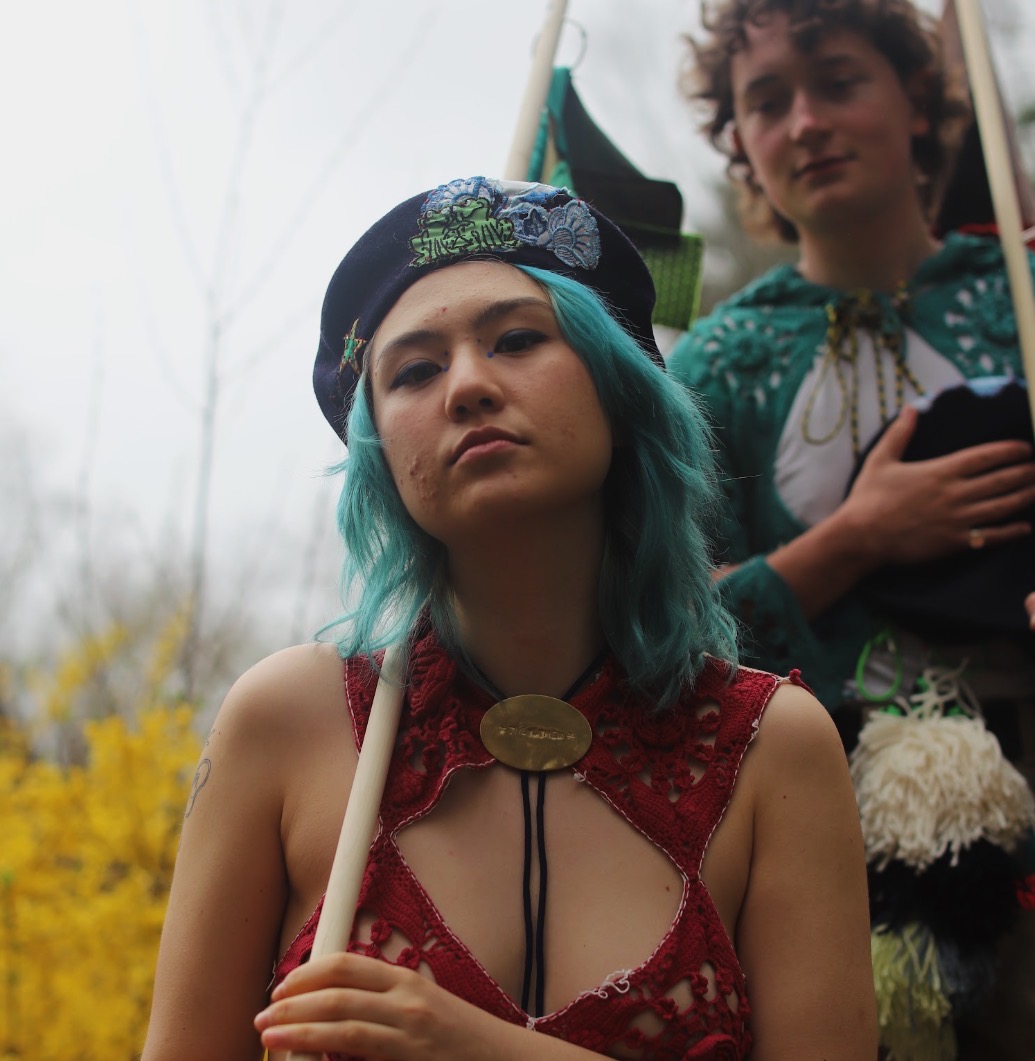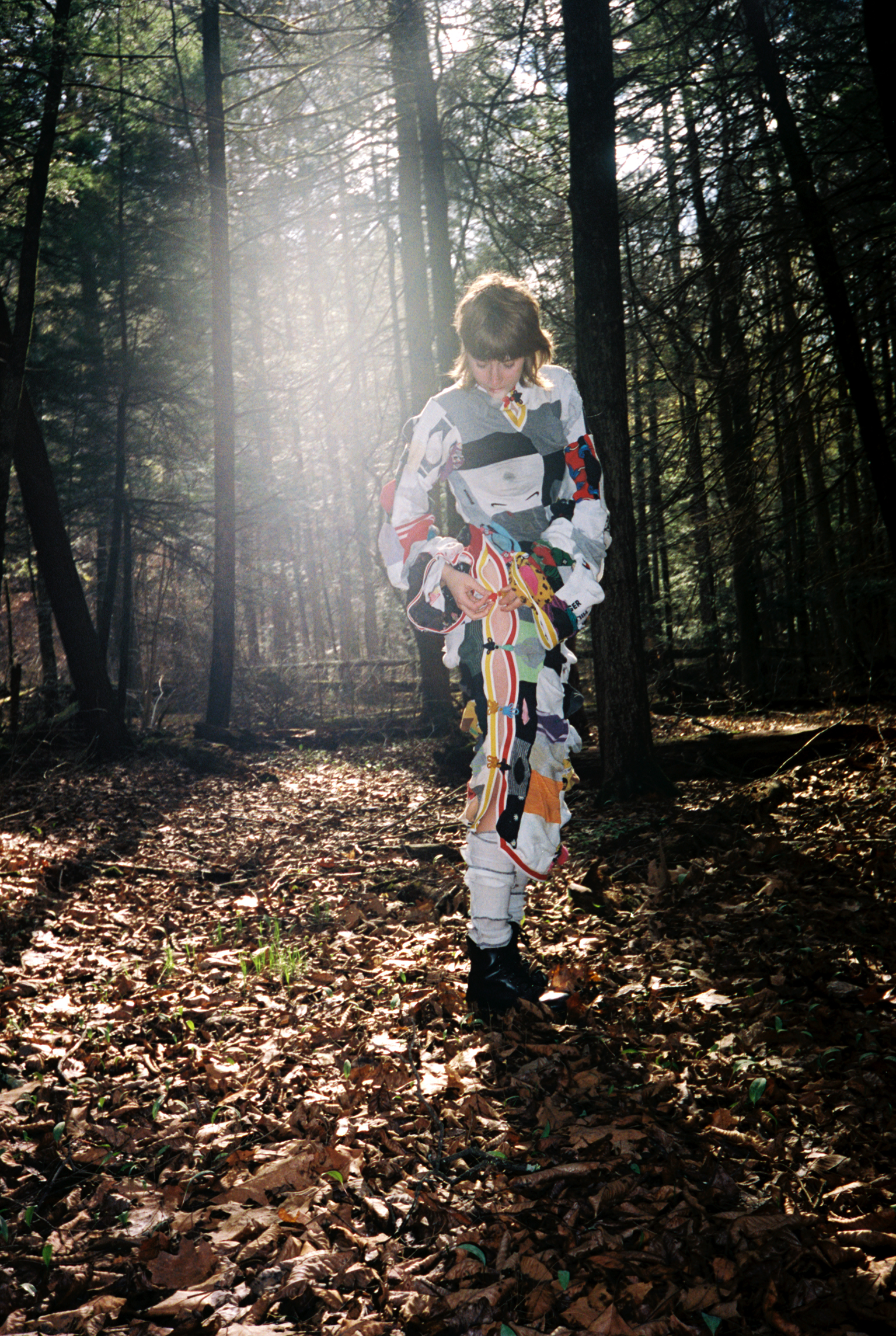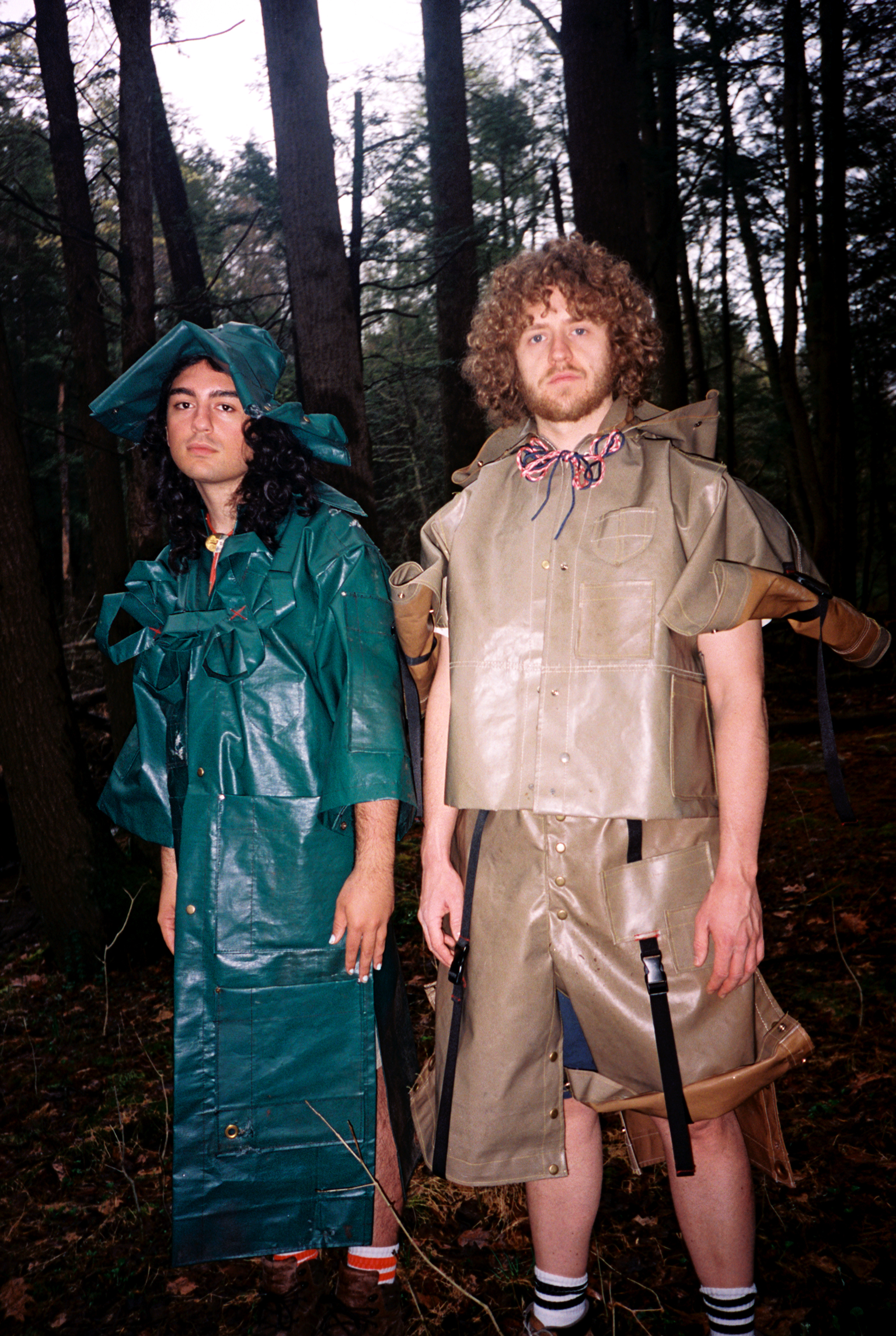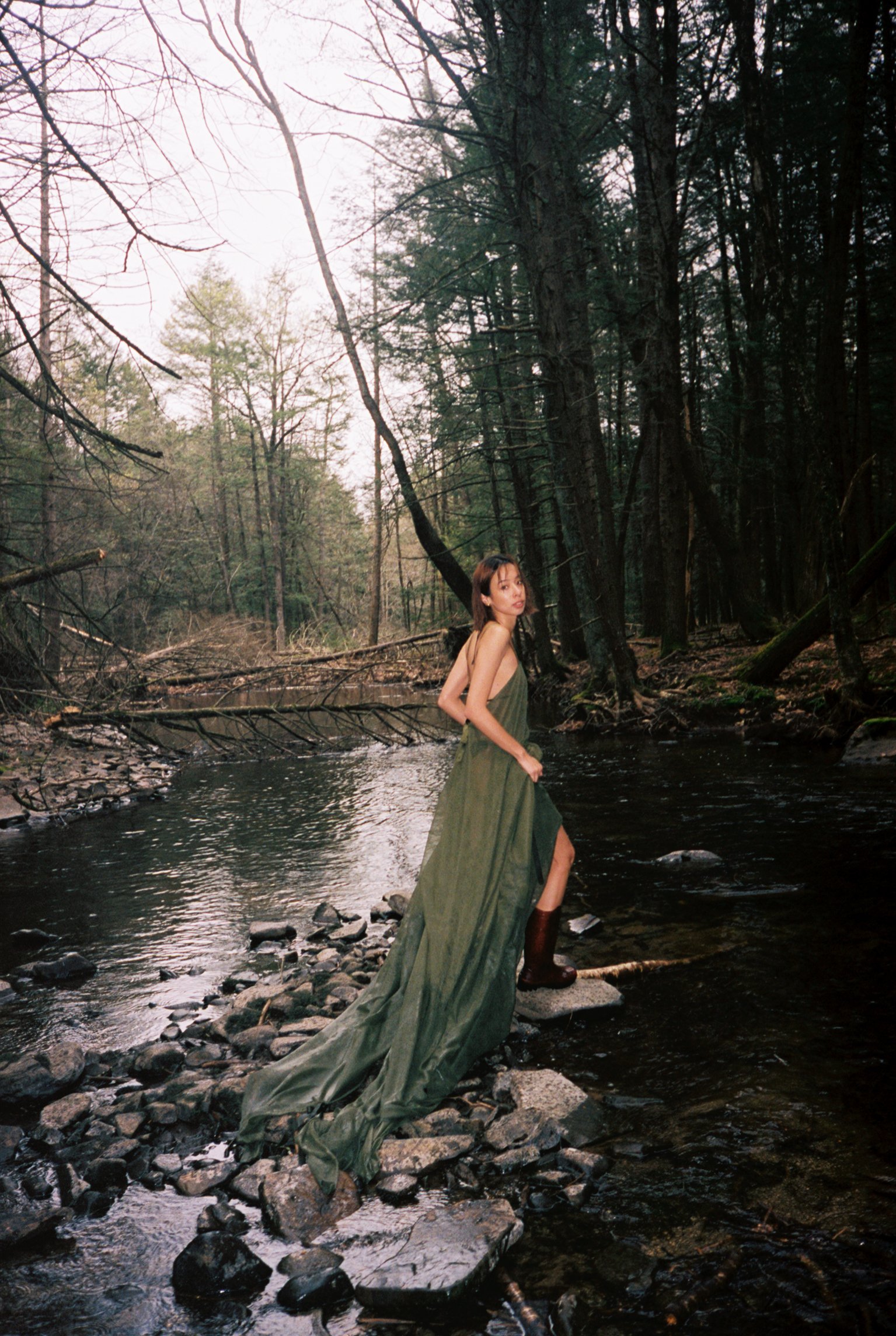Since receiving the Swarovski Foundation + CFDA Re:Generation Innovation Scholar Award last fall, how did interactions or conversations with experts resonate with you in your journey?
I can’t believe how much the CFDA has changed my life by giving me these opportunities. The scholarship alone allowed me to create such a full and realized collection, along with a film that is almost done! The mentorship with Jack Carlson of Rowing Blazers was out of pocket inspiring and transformative. Observing how he works and thinks about design and collaboration, and hearing the hundreds of stories about his own journey and pieces of advice were incredible. I feel like he is someone who is paving his own path in the industry, working both hard and smart.
Meeting with Alan Mak also transformed me a lot, providing valuable insights into some bigger picture things. I remember asking him whether I should try to sell with SSENSE or other online retailers, considering that they might not align with my sustainable techniques. He said something along the lines of, “Why would you limit yourself like that? Don’t you want people to like your designs for their inherent beauty and have the sustainable aspects surprise and transform them later?” He taught me about what it means to build a brand, how challenging it is, and how to make the right moves and be smart.
Danielle Elsener of Decode is someone who was actually a mentor to me before winning the CFDA, and she’s my hero. Besides being a zero-waste pioneer and master, I’m looking to do my production run at the Decode MFG center in Brooklyn Navy Yard. I feel like what she’s doing is paving the way for zero waste brands and designers to exist and thrive.
As a {fashion} design + systems thinker, creator, and transformer, what is your theory of change?
For me, it’s about transforming our hearts, minds, and practices. I want to do it well enough that others will be inspired and follow, paving their paths. Brands aren’t currently using all waste textiles or zero-waste patterns. Sure, they might have one or two pieces in a collection made that way, but to do everything like that means building it from the ground up. That’s why I’m glad I’m not established yet, with hundreds of orders to meet. It would be challenging to pivot when you’re already built on different systems. Taking the time to say, “I’m going to be serious about these principles, and this will be the core of the brand,“ and then building it right is something only a ballsy crazy kid would do. So when it all works out, and in 10 years, everyone is thinking, “Why didn’t I think of that?“ or “That looks like the right way to do it,“ I can be really proud of all the hard work and effort it took to get people to appreciate the look of damaged used textiles. Often I question how we can get people to care about their clothes, how they’re made, and who made them? Making thoughtful zero-waste designs from repurposed materials and challenging the systems that fashion is built upon is part of the answer
You recently attended the Global Fashion Summit in Copenhagen. From your vantage point, what key takeaways do you want the industry to keep top of mind? What do you see as the biggest roadblocks, hurdles, or barriers to transforming fashion today? With your mindset of radical optimism, where in fashion do you see the greatest potential for positive change to prevail?
Recently, an article was published in Dazed by Sophie Benson titled “What do global sustainability summits actually achieve?” I feel like it perfectly summed up my questions about the event and the future of corporate fashion. The vibe wasn’t really about how we could take more radical steps, and there was no fast fashion roast panel (which I will gladly host next year if they hit me up). Instead, it was more about celebrating our growth, increasing sales and production, while believing that recycling will save us. I had the opportunity to talk to some fabric recyclers who gave me their perspective, which was very interesting. It had to do with the idea that yes, these famous, enormous, fast fashion brands seem bad, but they are the ones who are at least trying to create options through recycling and other circular techniques. There are plenty of brands not even trying to do that, and if those brands that are trying go away, all we will have left is the ones that don’t care at all. I am yet to decide how I feel about that, but it was amazing to hear their perspective (even though most of those fabric recyclers were in contract with the big fast fashion brands…).
A panel about the Bangladesh manufacturers and their safety implementations post-Rana Plaza was incredibly transformative. It was all about how they are building systems where everyone along the chain is part of the conversation, from designers at the brands to factory owners to the workers in the factory. It was seriously interesting; I mean, it made me think differently about production in Bangladesh and countries known for varying labor standards. I am grateful for the opportunity to attend, but I’m still wondering why there weren’t more young people or people from the global south? Why can’t we openly discuss overproduction and the relationship fast fashion marketing and consumerism have?
Despite these concerns, I found hope in realizing that policy and law have a huge part to play in regulating the industry, and some new ideas and policies about brands being responsible for waste were introduced, like the Fashion Act in New York state or new European policies about waste responsibility. These could lead to significant improvements quickly, and I hope to see some radical change from it.
Futures GPS. What’s in your viewfinder as you look ahead and springboard into your future?
Right now, I’m mostly thinking about what it means to operate sustainably at a personal level. How can we all live more sustainably? I believe it’s about going slower, working less, and enjoying the little things more, like sunshine, poetry, good food, and sleeping. I’m currently building my website, preparing to release a fashion film soon, and working on the first production run for Isaboko. However, beyond that, I’m going to Taiwan this August. I want to see family I haven’t seen in five years, spend time with my sister and partner, and heal my relationship with my body, family, and work. I aim to grow a fashion business sustainably and rely more on others. My springboard is all about heading towards good vibes, love, and creating cool authentic clothes that shake everyone up in the best way possible.











